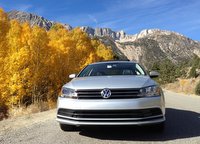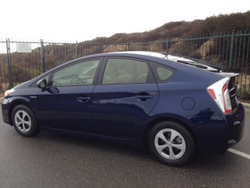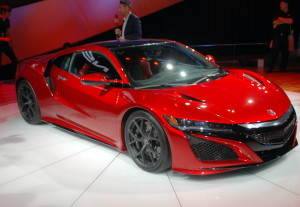Choosing Between Two Good Technologies
Buying a new car is a daunting task. We have an infinite number of choices when we go buying a car— all-wheel-drive cars, sedans, SUVs, small cars, trucks and what not. But, when it comes to making a decision, we all may take a lifetime to decide—which one’s is the best for me. Even for those who love cars more than their lives, it is an imposing task.
To help you make a wise decision for yourself, I have narrowed down the choices by comparing diesel and hybrid powertrains. These two options do not require you to make a major lifestyle change. So, without further ado, let’s get down to business.
Clean Diesel vs. Hybrid: Fuel Economy
I hope gas mileage matters to you; it should, and that’s probably why you’re reading this column. Moreover, if you are looking for a hybrid or a diesel car, chances are that gas mileage matters to you a lot. There’s no harm in this because gas prices will always remain a major automotive expense.
Diesel cars have better fuel economy on the highway while hybrids are more efficient in town. Most of us have had a bad impression of diesel cars based on old stereotypes—They are loud, hard to start, foul-smelling and harm the environment.

Today, diesel powertrains don’t fit that old image. They are on the road again for many reasons—fuel economy and efficiency being the lead ones. New clean diesel technology has made diesel cars more desirable.
Diesel powertrains are advantageous because of extremely efficient combustion, which allows extremely good fuel economy. On the other hand, a hybrid proves to be advantageous because it recovers energy that is lost during starts and stops. So, it is meant for those who start-and-stop quite often.
Clean Diesel vs. Hybrid: Cost
When it comes to pricing, diesel cars are more expensive than their gas counterparts, but cheaper than hybrids. Making comparisons between the two, there’s one mainline model that offers all three—gas, hybrid and diesel (although the trim levels do vary). According to the VW, the price difference on somewhat comparable trim levels work out like this:
Jetta SEL (top trim level of six) $25,380
Jetta TDI SEL (top trim level of three) $26,410
Jetta Hybrid SEL (only trim offered) $31,120

Based on that, you see a $1,000 difference between the gas and diesel models and almost a $5,000 jump from the diesel to the hybrid. That said, the gas Jetta’s have models that start at $17,325 the TDIs start at $21,640.Another comparison you might want to make is between the most popular diesel, the Jetta TDI, which starts at $21,640 and the most popular hybrid, the Toyota Prius Liftback, which starts at $24,200. Remember, just as they say about mileage, your prices may vary.
If you are still confused here’s another fact – diesel have historically retained a much higher resale value than both gas and hybrids according to a study done in 2015 by University of Michigan’s Transportation Research Institute (UMTRI). We can’t say that the cost doesn’t matter because in the end, it all depends on the vehicle and options.
Clean Diesel vs. Hybrid: Technology
The technologies of the two have their own unique features, but the competition between the two remains. There are some common things between hybrid and diesel technologies.
Hybrid: Energy regeneration is a key feature that sets a hybrid system apart from normal gas-powered cars. While using friction brakes to slow down, kinetic energy is lost in conventional cars. However, this energy is captured in a regenerative braking system, which turns into electricity and stores it in the battery. The stored electricity can later be used to run the motor and accelerate the vehicle.
Though they vary in other ways, many hybrids use lithium-ion battery packs similar to those used in EVs while Toyota’s Prius Liftback (and many other Toyota and Lexus hybrids) still comes with an old school nickel-metal hydride battery pack. Some companies, like Acura, are also coming up with new approaches such as using hybrid drive to create all-wheel drive by placing electric motors to drive the car’s rear wheels while the gas engine drives the front.

Diesel: Diesel is old technology, but recent years have seen significant advancements. The latest common rail fuel injection technology has revolutionized modern diesel powertrains. This system uses a single piezoelectric injector that injects fuel at extremely high pressures. This makes each engine detonation more powerful, thereby making the engine more robust and efficient, with cleaner combustion.
Clean Diesel vs. Hybrid: Performance
Hybrids have come a long way in the last decade. If you are looking for efficiency without sacrificing performance and fun, diesel is still far ahead of Hybrid.
Hybrids: Forget the early hybrids that were often downright unpleasant to drive. Thankfully, modern hybrids aren’t that way. Their power now comes on quite smoothly and evenly. Even with the presence of electric motors, it rarely feels electric. They still have batteries that are quite heavy to carry around. But things are changing with modern cars such as Acura RLX Sport Hybrid are coming with technology that is going to leave many of gas-powered cars in the dust.
Diesel: Diesel powered cars have a different story altogether. Cars such as Audi A7 TDI drive well and perform quite awesomely. It has a truckloads of torque, which allows it to outperform most gas-powered luxury cars. Similarly, midrange Mercedes and BMW diesels also offer amazing performance.
Clean Diesel vs. Hybrid: Impact on Environment
Hybrid: With high gas mileage and low emissions, hybrids seem to outperform diesel-cars. But, as the matter of fact, batteries might still not be nearly as green as it claims. Both lithium-ion batteries and nickel-hydride batteries and electric motor components rely on mining of nickel, copper and so-called rare earth metals. The production of lithium-ion batteries accounts for two to five percent of total hybrid emissions. Moreover, the nickel-hydride batteries are responsible for higher sulfur oxide emissions, roughly 22 pounds, which is quite high as compared to conventional vehicles (at 2.2 pounds). [sources:Samaras and Burnham etal].

Diesel: Diesel-cars today, as compared to old truck engines that emitted clouds of toxins into the air, are much better. With improvement in technology, modern diesel-cars could be compared to particulate emissions to any gas car.
As with price, there will be specific exceptions to this rule, but I believe diesel is greener than hybrid technology.
Conclusion
A decade ago, the choice between the two would have been easy. But today, to buy a car online or to buy it directly from a retailer, a shopper faces the dilemma of choosing from more than a hundred hybrid and diesel-powered cars. This makes the answer difficult.
However, when it comes to mileage, hybrids may seem good on paper but on the road it may come with a nasty shock since it is often difficult to replicate EPA label mileage. And if your pockets don’t allow you to go for a hybrid go for a diesel car. If you care about the environment, research the cars you have opted to consider. From my point of view, modern diesels are likely to be greener than a hybrid.
So as for now, I personally would go for clean diesels over hybrids.
Related Stories You Might Enjoy:
Road Test: 2015 Volkswagen Golf Sportwagen TDI
Road Test: 2015 Lexus NX 300h
Road Test: 2014 Jeep Grand Cherokee EcoDiesel
Road Test: 2014 Toyota Highlander Hybrid

Most buyers of hybrid cars are concerned about their CO2 footprint, more than about what they pay at the pump. Those buyers want hybrids, not diesels. For each gallon of diesel fuel burned, there is 15% more CO2 generated than for a gallon of gasoline. That makes diesel cars much more ‘efficient’ in terms of volume of fuel per mile driven, but only slightly more efficient than regular gasoline cars in terms of CO2 emitted per mile. Hybrids win on that front by a long shot (about 1/3 less CO2 per mile than a regular gasoline engine car).